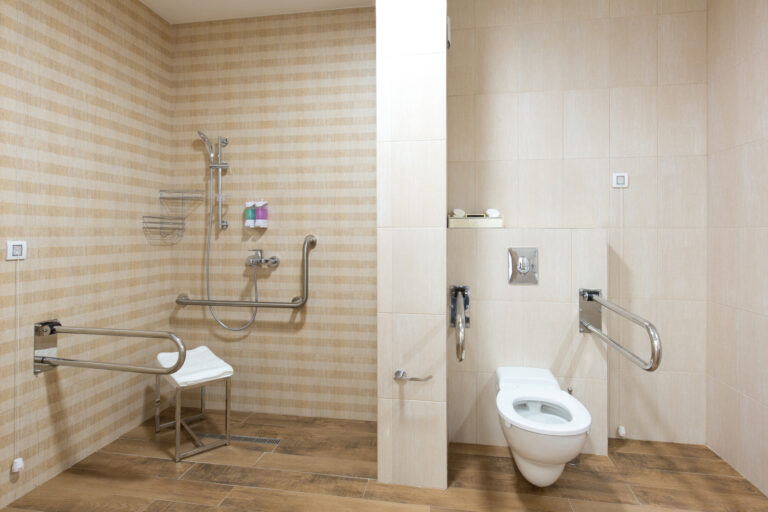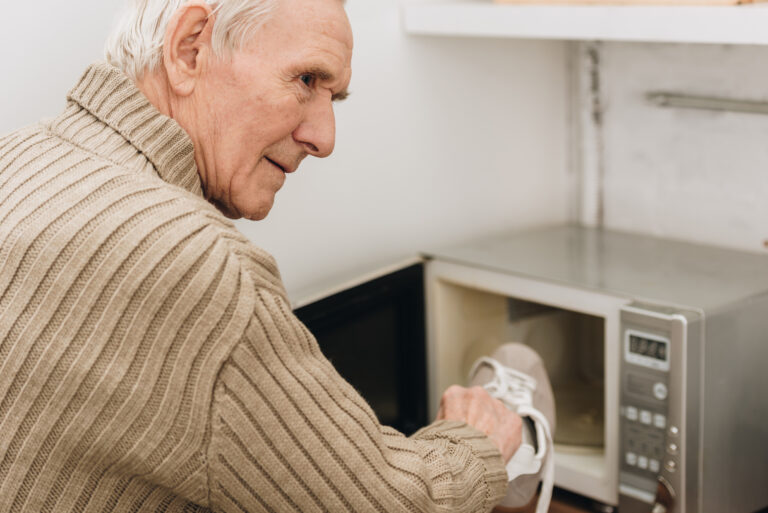Living alone can be a challenging situation for anyone, but it poses unique risks for individuals with Alzheimer’s disease. Alzheimer’s is the most common form of dementia, accounting for about 60 to 70 percent of dementia cases in many countries, including Canada [3]. As the disease progresses, it affects memory, cognitive function, and the ability to perform daily tasks, making independent living increasingly difficult.
One of the primary concerns for people with Alzheimer’s living alone is safety. Simple tasks like cooking or managing household appliances can become hazardous if not monitored properly. For instance, forgetting to turn off the stove or oven can lead to fires, while leaving doors open can compromise home security [4]. Moreover, individuals with Alzheimer’s may experience confusion and disorientation, which can lead to accidents or getting lost if they venture out alone.
Social isolation is another significant issue for those living with Alzheimer’s. Research has shown that social isolation and loneliness are linked to higher risks of depression, heart disease, and even Alzheimer’s itself [2]. People with Alzheimer’s who live alone often lack the social interaction that can help mitigate these risks. Social support from family or friends can provide emotional comfort and practical assistance, which are crucial for managing the disease.
Remote monitoring technologies have emerged as a potential solution to support individuals with Alzheimer’s who wish to live independently. These technologies include wearable sensors, mobile devices, and home-based systems that can monitor activities like mobility, sleep quality, and adherence to daily routines [1]. By analyzing data from these sensors, caregivers can identify patterns indicative of cognitive decline or safety threats, allowing for timely interventions [1]. However, the effectiveness of these technologies depends on factors such as their perceived usefulness and the impact on privacy [1].
Financial and legal support are also critical considerations for individuals with Alzheimer’s living alone. Without family support, managing financial and legal affairs can become overwhelming, especially as cognitive abilities decline [2]. This vulnerability can expose them to financial abuse or exploitation, highlighting the need for robust legal and financial planning.
Creating dementia-friendly communities is an essential step in supporting individuals with Alzheimer’s who live alone. These communities aim to provide a safe and respectful environment that promotes social interaction and reduces barriers to daily living [7]. By incorporating dementia-friendly practices into community settings, it is possible to enhance the quality of life for those affected by the disease.
In conclusion, while living alone can pose significant challenges for people with Alzheimer’s, it is not inherently dangerous if appropriate support systems are in place. This includes leveraging technology for remote monitoring, ensuring social interaction, and establishing robust financial and legal safeguards. Additionally, fostering dementia-friendly communities can play a crucial role in making independent living safer and more sustainable for individuals with Alzheimer’s.
References:
[1] https://www.researchprotocols.org/2025/1/e78623/
[2] https://www.seniorliving.org/health/aging/no-family/
[3] https://www.canada.ca/en/public-health/services/reports-publications/health-promotion-chronic-disease-prevention-canada-research-policy-practice/vol-45-no-10-2025/inequalities-burden-disease-dementia-alzheimer-disease-british-columbia-2001-2022.html
[4] https://www.liveinhomecare.com/a-guide-to-aging-in-place/aging-in-place/
[5] https://www.oulu.fi/en/news/low-labour-market-participation-may-be-first-sign-dementia-ten-years-diagnosis
[6] https://journals.sagepub.com/doi/10.1177/13872877251386378
[7] https://www.healthvermont.gov/wellness/brain-health-dementia/what-are-dementia-friendly-communities





